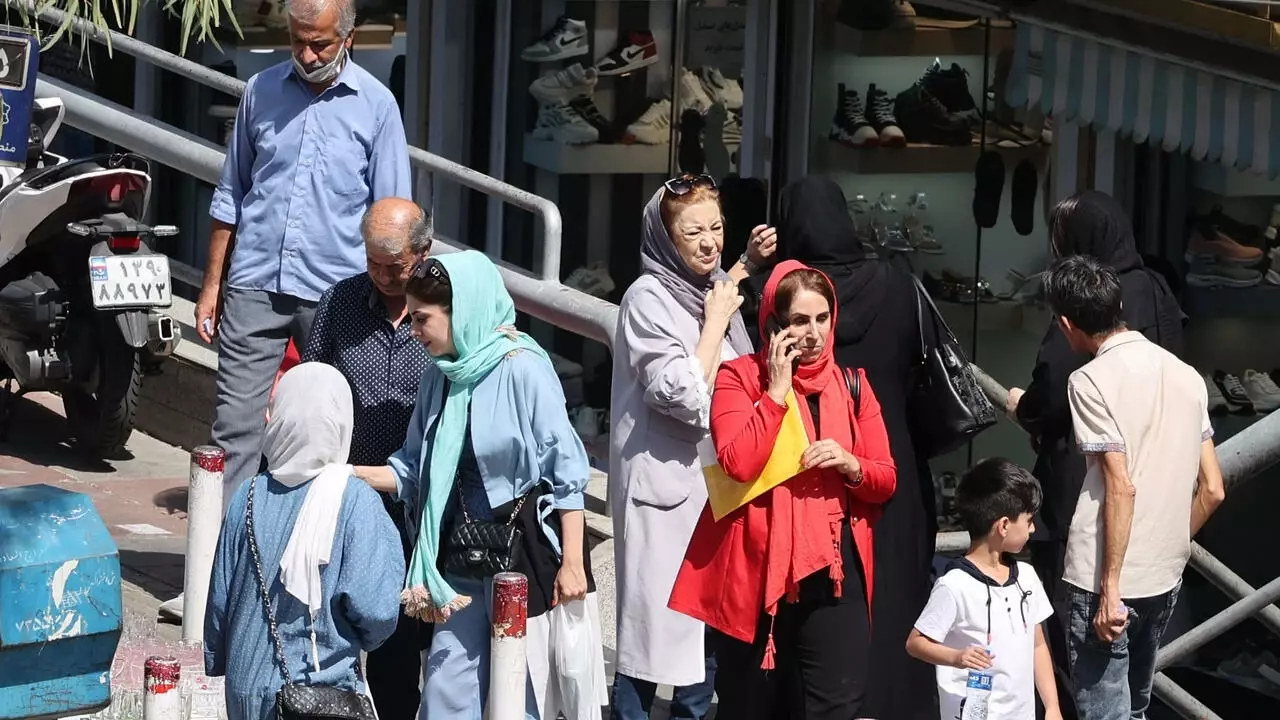
The death of Mahsa Amini last week after her arrest by Iran’s morality police has sparked anger and anxiety among many women in the Islamic republic.
"I’m frightened," said Nazanin, a 23-year-old nurse from Tehran, who told AFP she is now far more careful about how she wears her headscarf to avoid run-ins with the police unit responsible for enforcing a strict Islamic dress code for women.
Amini, a Kurd, had been detained for allegedly wearing a hijab headscarf in an "improper" way, and died at a Tehran hospital after having spent three days in a coma.
Public anger has flared over her death, and at least six protesters have been killed in nationwide demonstrations, according to Iranian officials.
Several women questioned in the Iranian capital on Wednesday all asked to be identified by their first names only for safety reasons.
The behaviour of the morality police -- known formally as the Gasht-e Ershad or "Guidance Patrol" -- "isn’t right", Nazanin said.
"They shouldn’t confront people at all" or interfere with how women dress, she added.
"I don’t understand why they do it," she said, insisting that "everyone respects the law".
"Hijab is a choice," said Mahtab, a 22-year-old make-up artist, wearing an orange headscarf outside her shop in an affluent neighbourhood in Tehran’s north.
"It shouldn’t be forced. I like to wear it... others prefer a chador," she added, referring to the conservative black full-body dress.
Mahtab is "afraid of seeing" the morality police, but said she hasn’t changed "at all" how she dresses.
However, she said she wouldn’t "dare" take part in the many demonstrations in the capital and more than a dozen other cities since Amini’s death was announced last Friday, and she called the protesters "brave".
In Iran, women -- regardless of their faith -- are required to cover their hair, and the morality police bans them from wearing coats above the knee, tight trousers, bright colours or torn jeans.
"Wearing hijab shouldn’t be something that is regulated by the law," said Reyhaneh, a 25-year-old student.
According to Mahtab, "they should let people choose, like in other countries".
Reyhaneh, too, hasn’t changed how she dresses, but said she has grown more wary of the morality police, insisting that violence by officers should be banned.
Activists said Amini had suffered a fatal blow to the head, a claim denied by officials, who have announced an investigation.
"With this latest incident, people are no longer calling this unit Ghasht-e Ershad but Ghatl-e Ershad (Death Patrol)," she said.
"Wearing hijab is a personal question, and women have a basic right to dress however they want," Reyhaneh added.